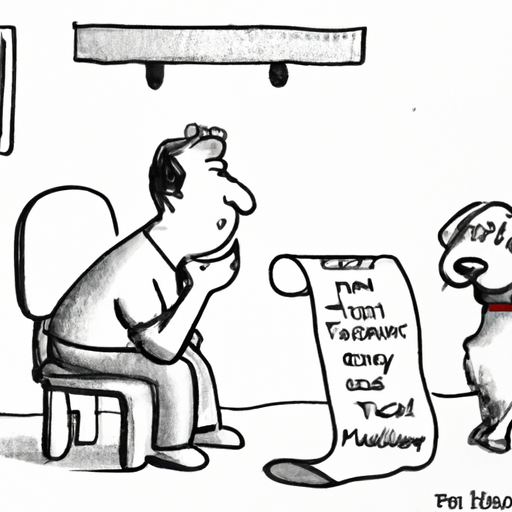Understanding Your Dog’s Digestive System
You are a caregiver, a pillar of support and love for your furry friend. It’s crucial that you understand how their digestive system works, as this knowledge will equip you to provide better care. The canine digestive system, similar to ours, is a complex process where food is broken down into nutrients for the body to absorb.
- Ingestion: The process begins when your dog consumes food.
- Digestion: This phase involves breaking down the food into nutrients, which starts in the stomach and continues in the small intestine.
- Absorption: Nutrients from the digested food are then absorbed into the bloodstream through the walls of the small intestine.
- Elimination: Lastly, the waste products of digestion, which the body cannot use, are excreted.
The entire process, from ingestion to elimination, typically takes between 10 to 24 hours. This means that under normal circumstances, you should expect your dog to poop at least once a day.
Factors Influencing Your Dog’s Pooping Schedule
Several factors can influence your dog’s pooping schedule. Let’s dive into the most common ones:
- Diet: The quality of your dog’s diet significantly affects their digestion. High-quality, fiber-rich food can promote regular bowel movements. On the other hand, a diet low in fiber may cause constipation.
- Age: Older dogs tend to have slower metabolic rates and may poop less frequently than younger, more active dogs.
- Health Conditions: Certain health conditions, such as gastrointestinal issues or metabolic disorders, can affect your dog’s bowel movements.
- Medication: Some medicines can cause constipation or diarrhea, which will impact your dog’s pooping schedule.
When Should You Be Concerned?
If you notice that your dog hasn’t pooped in over 48 hours, it’s a good idea to consult a vet. This could be a sign of constipation, which might be caused by:
- Dehydration
- A lack of dietary fiber
- Swallowed foreign objects
- Certain medications
In more severe cases, a dog not pooping could indicate a serious condition like a blockage in the intestine. Symptoms of a blockage can include:
- Vomiting
- Loss of appetite
- Bloating
- Abdominal pain
In such cases, immediate veterinary attention is necessary.
Tips for Maintaining a Healthy Pooping Schedule
To ensure your dog maintains a healthy pooping schedule, consider the following tips:
- Provide a balanced diet: Include a good amount of fiber in your dog’s diet. This can help promote regular bowel movements.
- Keep them hydrated: Adequate water intake is crucial for preventing constipation.
- Regular exercise: Physical activity can help stimulate the digestive system and promote regular bowel movements.
- Regular vet check-ups: Regular veterinary check-ups can help detect any underlying health issues early.
FAQs
Q1: Is it normal for a dog to poop more than once a day?
Yes, it can be normal depending on the dog’s diet, age, and overall health.
Q2: What can I give my dog if he is not pooping?
If your dog is not pooping, first consult with a vet. They might recommend a special diet, a dog laxative, or some other form of treatment.
Q3: How can I tell if my dog is constipated?
Signs of constipation in dogs include difficulty or straining when trying to poop, producing hard, dry stools, or not pooping at all for 48 hours or more. If you notice these signs, it’s best to consult a vet.
Q4: Can I give my dog human laxatives?
No, never give your dog human laxatives or any other medication without consulting a vet first. What’s safe for humans isn’t always safe for dogs.
This comprehensive guide should give you a better understanding of your dog’s digestive health. Remember, you are their caregiver and understanding their body’s needs is the first step to providing the best care possible.



